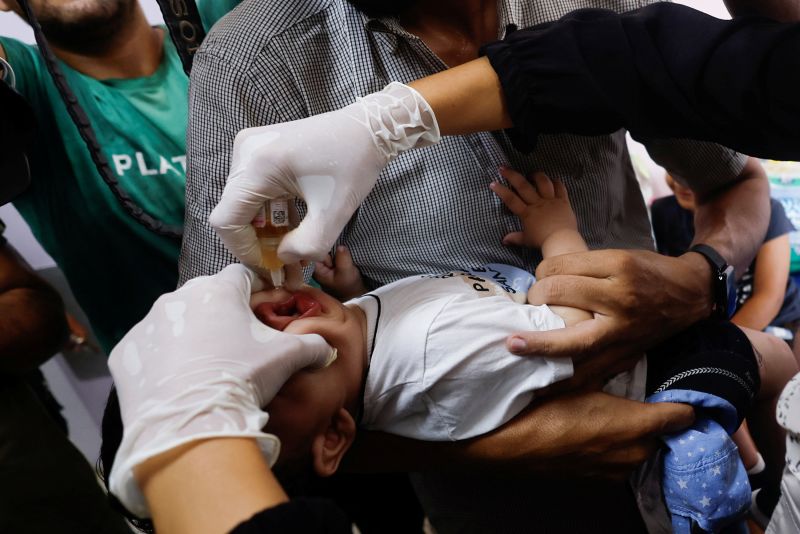
Landmark Moment: Gaza’s First Babies Get Polio Shots in Premier UN Vaccination Drive
The recent administration of polio vaccinations to infants in Gaza signifies a crucial step in the efforts to prevent the spread of this debilitating disease. The initiative, spearheaded by the United Nations, aims to create a widespread immunization campaign that ensures all children are protected against polio, a highly contagious virus that can cause permanent paralysis and even result in death.
One of the primary benefits of this vaccination drive is the establishment of herd immunity within the community. By vaccinating a significant portion of the population, the spread of the poliovirus is effectively curtailed, reducing the likelihood of outbreaks. This is particularly important in regions like Gaza, where densely populated areas can facilitate the rapid transmission of infectious diseases.
Furthermore, the vaccination campaign is also a testament to the collaborative efforts of various stakeholders, including government authorities, healthcare providers, and international organizations. This concerted approach not only mobilizes resources effectively but also ensures that the vaccination drive reaches as many children as possible, regardless of their socio-economic background or geographic location.
Beyond the immediate benefits of protecting children from polio, such vaccination campaigns also contribute to broader public health outcomes. By bolstering immunization rates, communities can reduce the burden of preventable diseases, leading to improved overall health outcomes and reduced healthcare costs in the long run.
Moreover, the vaccination of infants in Gaza serves as a powerful reminder of the importance of global health equity. Access to life-saving vaccines should be considered a fundamental right for all children, regardless of their circumstances. Initiatives like the UN-led polio vaccination campaign play a crucial role in bridging the gap in healthcare access and ensuring that vulnerable populations are not left behind.
As the vaccination campaign gains momentum, it is essential to maintain high levels of community engagement and awareness. Educating parents and caregivers about the importance of vaccination, addressing any misconceptions or concerns, and ensuring that healthcare infrastructure supports the continuous delivery of vaccines are critical components of a successful immunization program.
In conclusion, the recent administration of polio vaccinations to infants in Gaza heralds a new chapter in the fight against preventable diseases. By prioritizing community health and well-being through widespread immunization efforts, we can aspire towards a future where every child has the opportunity to live a healthy and prosperous life, free from the threat of debilitating illnesses like polio.
